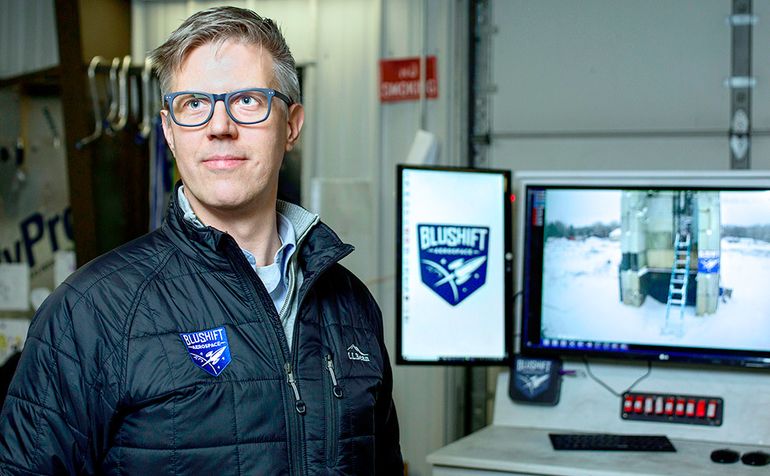A Brunswick rocket-maker that’s aiming high in the commercial space flight industry may have just entered a new orbit with the addition of a Los Angeles investor.
bluShift Aerospace, based at Brunswick Landing, has received a “strategic investment” from global enterprise engineering firm Theorem LLC, according to a news release Wednesday.
Theorem made the announcement as it launched a division focused on end-to-end logistics and other support for the growing space industry. The company’s new Theorem Orbital unit will serve aerospace clients through several “launch providers” that include bluShift and the businesses of billionaires Richard Branson and Elon Musk.
“We work with major launch providers giving you access to a wide range of launch platforms including those from Virgin Orbit, Rocket Lab, SpaceX, bluShift, and more,” Theorem Orbital said on its website Thursday. Forbes magazine also reported the story.
Neither Theorem nor bluShift would disclose the size of the new stake. But in an email, bluShift founder and CEO Sascha Deri told Mainebiz that Theorem CEO Brady Brim-DeForest is now bluShift’s biggest external investor.
“bluShift’s approach to developing cost-effective and sustainable next-generation rocket technology will open up space to new markets,” Deri said in the Theorem news release. “We feel that our mission and philosophy are well aligned with Theorem Orbital’s commitment to lowering the barrier to entry for companies beginning to leverage space-based infrastructure in their mid and long-term strategic plans.”
In January, bluShift launched Maine’s first commercial rocket and the world’s first biofuel-powered commercial prototype rocket, called Stardust 1.0, from Loring Commerce Centre in Limestone.
With 2,000 pounds of thrust, Stardust flew to about 4,000 feet, carrying several small customer payloads. The launch positioned bluShift to build a full-size engine, called the Modular Adaptable Rocket Engine for Vehicle Launch, or MAREVL for short, for successively larger rockets.
The engine will go into the next rocket iteration — the 50-foot-tall Starless Rogue, which is expected to produce 20,000 pounds of thrust and reach more than 215 miles above the Earth. The goal is to develop an “Uber to space” capable of carrying academic and commercial customer payloads.
bluShift is working on the MAREVL with the help of a $1.07 million crowd equity funding campaign, which reached its halfway point in June. All investments are now going toward that goal, Deri said. Longer term, bluShift hopes to raise $5 million and create 40 aerospace jobs in five years.
Brim-DeForest and his team approached bluShift as Theorem considered launch providers for a client, according to Deri.
“They connected with our business development team and were so inspired by bluShift’s approach to doing space in a cleaner, more Earth-responsible way that they decided to put their ‘money where their mouths’ were,” he said.
There’s also a geographic connection to the new investor. According to Deri, Brim-DeForest lives in Maine with his wife and children.

